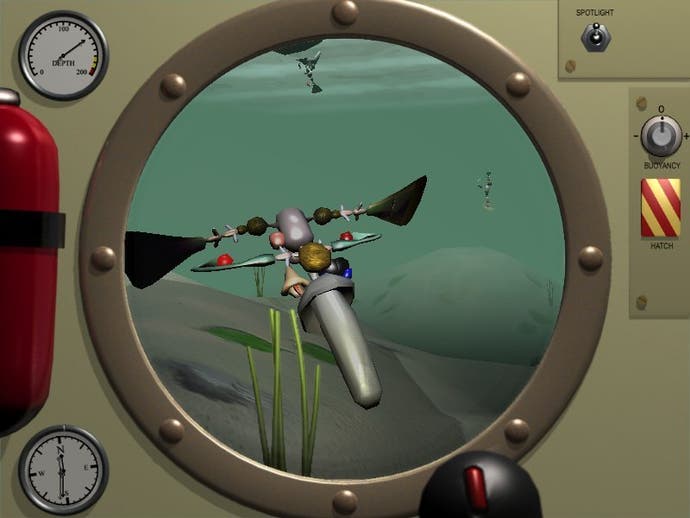Saviour Machine
AI master Steve Grand talks Creatures, Spore and Simbiosis.
Simbiosis, unlike Spore, went much deeper than cosmetic customisation. It was about creating organisms at an (almost) cellular level, and observing their behaviours as they interacted with each other. "The idea goes right back to about 1979," Grand explains, "when I first started to experiment with what was to become Artificial Life. I had an idea for a simple grid of cells that could interact with each other to produce a creature. The entire properties of the creature would be determined by the nature and arrangement of the cells - stinging cells, digestive cells, nerve cells, etc. I thought that I might be able to design creatures that could navigate by themselves, seek out food, protect themselves against predators and so on, by designing 'circuits' in much the same way that an electronics engineer designs an amplifier or radio circuit.
"But in those days computers and computer graphics simply weren't up to the task. I made some plants that could evolve but that was all. So when I found myself needing a new project to make some money, the fact that computers were now thousands of times faster and capable of 3D graphics made me revisit the idea."
Simbiosis' "building blocks" were, as Grand puts it, "sort of a cross between a cell and an organ. [Each] had a specific internal function - sensitivity to light, the ability to bend, the ability to convert one chemical into another, or whatever. And it had a set of channels, through which virtual chemicals could flow. These channels corresponded to the inputs, outputs and other variables controlling the cell. The output of a light sensor, for instance, would be a chemical whose concentration rose as the scene got brighter. If you fed that chemical into a muscle cell, the cell would bend in proportion to the amount of light.
"By combining these cells into simple circuits you could make creatures that swam towards light, or grabbed food as it passed overhead. But once you'd made simple creatures like these, you could become more adventurous and try to make other, more complex creatures, which could catch and eat the simpler ones. The game was based underwater, since that gives you lots of opportunities for different kinds of locomotion, etc., and you built the creatures inside a laboratory ship. Once you'd released them into the wild you could climb into a submersible and tour around studying them and debugging your design unless you wanted evolution to do it for you."
Unfortunately, due to shifting personal circumstances and waning interest, Simbiosis has been shelved. But Grand is apparently working on a new, unannounced project - potentially, from the sounds of it, a spiritual successor to Creatures. He isn't, admittedly, quite sure where he's going to take the project, but he will say this: "All I know is that it's 13 years since I finished Creatures and, in the meantime, computer technology, as well as my ideas about A-life and AI, have moved on quite a long way.

"So I want to create some new creatures - hopefully the most advanced artificial life-forms on the planet - although that's not asking much; not much has happened since Creatures. I want to incorporate some of my ideas about how the brain might give rise to imagination and mental imagery, and how that drives intelligence. But I don't really know what it's all going to look like yet. I might open a pet shop and sell aliens, or I might do something else. Whatever it is, it will emerge. Life always finds a way."
Whatever shape his project takes, there is one mistake Grand is in no hurry to repeat - this time, he'll work alone and self-publish. Creatures may have reached a wider audience thanks to its Mindscape publishing deal - it was, actually, considered by Maxis at one point - but the rewards for Grand were minimal. "I'd rather have 100 per cent control and 100 per cent royalty on a small number of sales than be messed around by publishers and only get a fraction of the money from a larger sale," he says.
"I didn't earn a cent from Creatures beyond my salary and I've put years of work into developing my thoughts and ideas, so this time I really need some cash! But I think I have enough of a reputation and following to sell a modest number of copies to a small but passionate community, and I'd much rather do that than be part of a huge marketing machine."
Hopefully, we'll see a glimpse of this nebulous project in the not-too-distant. If Spore, after all, was the game to re-ignite interest in emergence and AI, then this may well be the title to fulfil it. Just don't tell SHODAN - you know how she gets when pathetic creatures of meat and bone get the better of her.